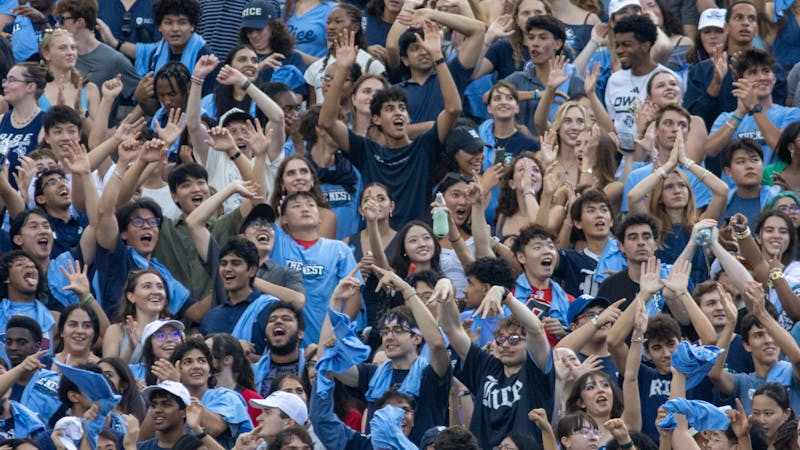Jones MBA program ranked highly again
The Jesse H. Jones Graduate School of Administration full-time MBA program was ranked 53rd in the world for 2009 by the Financial Times, up nine places from last year's ranking of 64th. This is the third year that Rice was ranked on the list. The Jones School's highest ranking was 47th in 2007 before it fell to 64th last year. The rankings are based on several factors, including the average salary of alumni and the percentage increase in alumni salary using the alumni's pre-MBA and post-MBA salary information.
According to the Financial Times, alumni of the Jones School full-time MBA program earn an average salary of $109,302 three years after graduation. This figure is $60,482 less than that of the nation's top ranked program, the Wharton School of Business at the University of Pennsylvania.

Alumni of the Jones School MBA program earn salaries that are, on average, 101 percent higher than their pre-MBA salaries. The weighted salary for Jones School alumni, calculated as the average alumni salary today adjusted for variations between industry sectors, has increased by $4,073 since 2008, despite the economic downturn. During this same period, Wharton alumni salaries increased by one-fourth that rate.
Jones School MBA students can expect to continue to do well in the current economy because alumni pursue diverse career paths, Dean of the Jones School of Management William Glick said. Since Jones School programs do not emphasize careers on Wall Street like other MBA programs, Glick said graduates can keep looking forward while others are looking down.
"We are opening more doors in different directions," he said.
According to Glick, 32 percent of MBA alumni work in the energy industry, with Exxon Mobil as one of the biggest employers.
The Jones School has been placing greater emphasis on its own career services program in recent years. Chair of the Jones School Student Association Brad Elmore said the economy has simply required a variation in the type of advice given to students.
"The program encourages students to do what they want to do," Elmore said. "They [Jones School] provide the means to make it happen."
The fact that students graduate with a high chance of earning double the salary of when they came in keeps the opportunity cost for Jones School alumni favorable.
Glick said he is confident that the program's ranking can only improve. Curriculum changes, along with higher selectivity in the admission process and an improved research profile, will help achieve that goal, he said.
The Jones School also increased in rank for its research capacity, which ranked 20th this year compared to 50th last year.
"I am surprised at how much better we are doing on the research front," said Glick.
Though the effects of research improvements on rankings are lagged, they stimulate excitement for the future, he said.
The Jones School is also among the top 10 schools in both percentage of underrepresented minorities and percentage of women in the student body. International faculty are also commonplace in the Jones School. Professors from Brazil, France and Asia have recently been hired.
"Business is global, and learning to manage in a diverse environment is important," Glick said. "Hearing different perspectives is part of the learning process."
Although most students said they were aware of the rankings, they said they take them with a grain of salt. Elmore said he left concerns over rankings to the administration.
"[Dean Glick] is the coach and we are the players," said Elmore. "His job is contingent upon [the rankings]."
Elmore said that the community spirit of the Jones School programs offered him more value than a ranking would.
"I have gotten as good a value out of this program as I would with any other," Elmore said. "It is challenging but we are all in it together.
More from The Rice Thresher

Rice loses to UH in Bayou Bucket Classic
The Bayou Bucket will remain with the University of Houston until at least 2030 after Rice football lost to the Cougars Saturday.

Moody Center’s new exhibit blurs the line between body and machine
Swelling latex sculptures, inspired by placentas and umbilical cords have taken up residence in the Moody Center for the Arts. The Barcelona-based artist Eva Fàbregas describes her pieces as forms that grow from “the guts of the architecture,” inflating and wrinkling as if they were alive.

Fizz users and moderators talk fame, challenges
During the volleyball team’s face-off against the University of Texas at Austin on Sept. 3, Jack Vu decided to have a little fun with the scoreboard. An anonymous poster had inaccurately mentioned that Rice beat UT on Fizz, so Vu decided to join in.

Please note All comments are eligible for publication by The Rice Thresher.